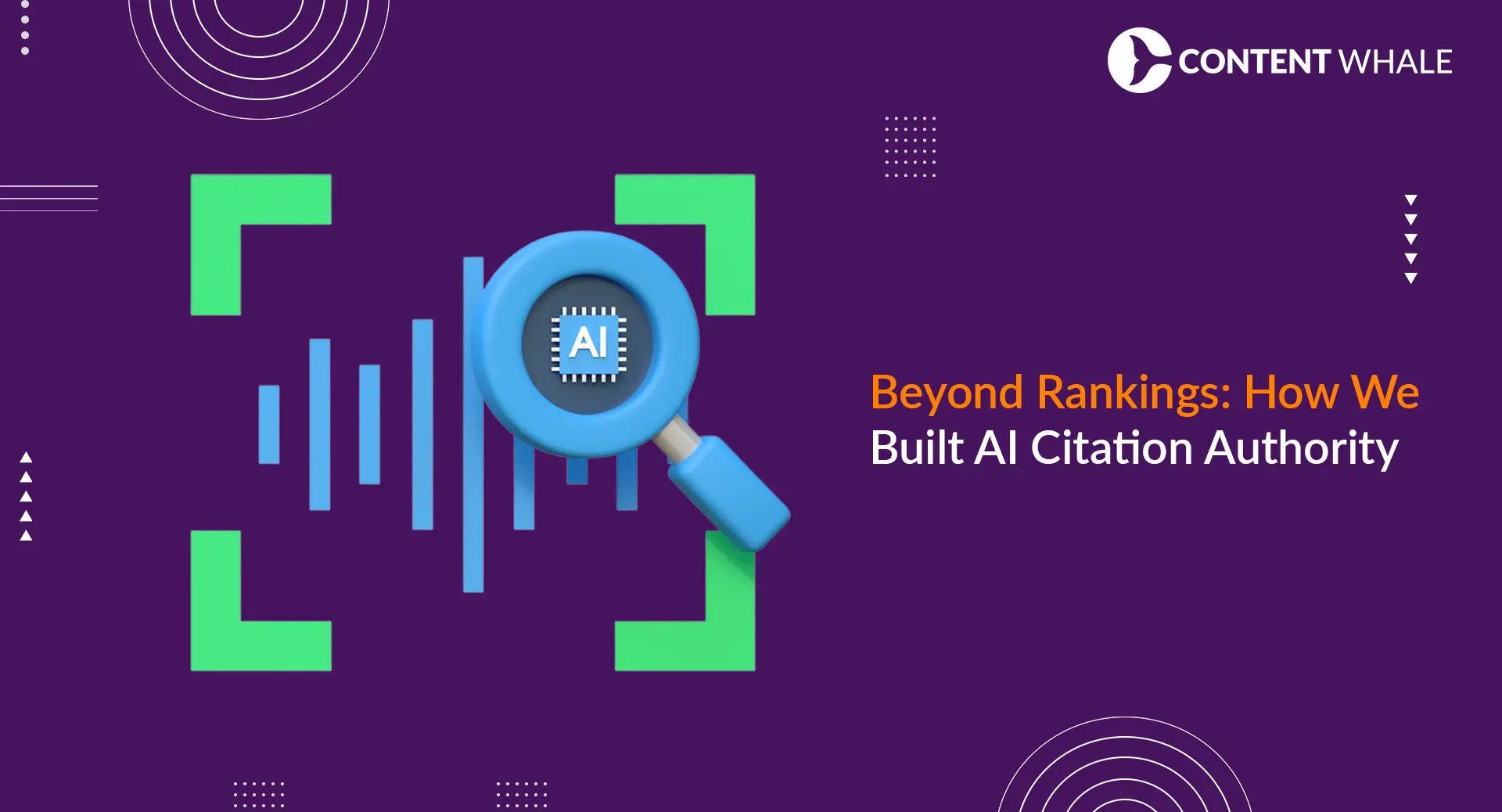Optimizing educational websites for search engines is essential in today’s digital age. With the rise of online learning and digital resources, SEO plays a vital role in making educational content accessible to a broader audience. By focusing on effective SEO strategies, educational institutions can improve their search rankings, increase visibility, and attract more students and educators. This guide will cover key SEO techniques tailored specifically for educational websites, ensuring that your academic content reaches its intended audience efficiently and effectively.
Ready to boost your site’s performance? Let’s dive into the essentials of educational website SEO.
Basics of Educational Website SEO
Understanding how search engines rank educational websites is the first step in improving your site’s visibility. Search engines prioritize relevance, authority, and user experience when ranking sites. For educational institutions, this means creating content that is not only informative but also trustworthy and user-friendly.
Relevance is achieved by incorporating educational content SEO techniques, such as using targeted keywords related to your field of study. Authority is built through academic site SEO strategies like acquiring backlinks from reputable sources. Lastly, a positive user experience is ensured by optimizing site speed, mobile-friendliness, and secure connections.
Common SEO challenges faced by educational sites include dealing with outdated content, managing large amounts of data, and ensuring accessibility. By focusing on these core aspects, you can create a strong foundation for your educational SEO tactics and improve your website’s performance.
How to Conduct Effective Keyword Research for Educational Sites?
Effective keyword research is the cornerstone of successful educational website SEO. By identifying high-value keywords, you can ensure that your content aligns with what students and educators are searching for. Here are some tools and techniques to help you find the best keywords for your SEO strategies:
Tools for Keyword Research
| Tool Name | Features | Pricing |
|---|---|---|
| Google Keyword Planner | Find relevant keywords and get search volume data | Free |
| SEMrush | Comprehensive keyword analysis and competitor insights | Subscription |
| Ahrefs | Keyword research, backlink analysis, and content ideas | Subscription |
| Ubersuggest | Keyword suggestions, SEO analysis, and content ideas | Free/Subscription |
| Moz Keyword Explorer | In-depth keyword analysis and difficulty scores | Subscription |
Best Practices for Keyword Incorporation
- Identify high-value keywords: Use the tools listed above to find keywords with high search volume and low competition, focusing on terms like educational website SEO, academic site SEO, and education search optimization.
- Natural placement: Ensure keywords are integrated naturally within your content. Overloading your text with keywords can harm readability and search engine rankings.
- Variety and LSI keywords: Use a mix of primary, secondary, and LSI keywords such as school SEO, university SEO, and SEO for schools to cover a broader range of search queries.
- Update regularly: Continuously refine and update your keyword strategy based on performance data and changes in search trends.
By following these steps, you can effectively enhance your educational content SEO and ensure your site ranks higher in search engine results.
What are On-Page SEO Techniques for Educational Websites?
On-page SEO is a critical component of educational website SEO. Optimizing various elements on your web pages can significantly improve your site’s search engine rankings and user experience. Here are some key on-page SEO strategies for educational websites:
Optimizing Title Tags, Meta Descriptions, and Headers
- Title Tags: Ensure your title tags include primary keywords like educational website SEO and school SEO to make them relevant and appealing to search engines and users.
- Meta Descriptions: Craft engaging meta descriptions that incorporate keywords such as education optimization and university SEO to increase click-through rates.
- Headers (H1, H2, H3): Use headers to structure your content logically, including secondary keywords like SEO strategies and academic website ranking to help search engines understand your content better.
Tips for Creating SEO-Friendly Educational Content
- Keyword-rich content: Integrate primary and LSI keywords naturally within your content. For instance, use terms like educational content SEO and academic site SEO in your articles and guides.
- Engaging formats: Use various content formats such as blog posts, articles, and guides to cater to different audiences and improve user engagement.
- Multimedia elements: Include images, videos, and infographics to enhance the user experience and make your content more shareable.
Best Practices for Internal Linking and Content Organization

1. Internal Linking:
- Link related pages using relevant keywords like educational website SEO and education search optimization to improve site navigation and distribute page authority.
- Ensure links are natural and provide additional value to the reader.
2. Content Organization:
- Structure your content logically using headers and subheaders with keywords such as academic website ranking and SEO for schools.
- Create a clear and intuitive navigation menu to enhance user experience.
By implementing these on-page SEO techniques, you can boost your educational website SEO and make your academic content more accessible to your target audience.
Some Technical SEO Considerations for Academic Sites
Technical SEO is a vital aspect of educational website SEO. Ensuring your site is technically sound can significantly impact your search engine rankings and overall user experience. Here are some essential technical SEO strategies for academic sites:
Importance of Site Speed, Mobile-Friendliness, and Secure Connections
- Site Speed: Fast-loading pages are crucial for both user satisfaction and search engine rankings. Optimize images, use caching, and minimize code to improve site speed.
- Mobile-Friendliness: Ensure your site is responsive and provides a seamless experience on mobile devices. With more users accessing content on their phones, mobile optimization is a key part of education search optimization.
- Secure Connections: Use HTTPS to secure your site and protect user data. Search engines prioritize secure websites, so implementing HTTPS is essential for educational website SEO.
Tools for Conducting Technical SEO Audits and Fixing Issues
| Tool Name | Features | Pricing |
|---|---|---|
| Google PageSpeed Insights | Analyze and improve site speed | Free |
| GTmetrix | Performance analysis and optimization suggestions | Free/Subscription |
| Screaming Frog | Comprehensive technical SEO audits | Free/Subscription |
| Ahrefs Site Audit | Detailed SEO health check and issues detection | Subscription |
| SEMrush Site Audit | Identify and fix on-site issues | Subscription |
Best Practices for Implementing Structured Data and Schema Markup
1. Structured Data:
- Use structured data to help search engines understand the content on your educational site. This can improve your site’s visibility in search results.
- Implement structured data for educational content, events, and courses.
2. Schema Markup:
- Use schema markup to provide additional information about your content, such as course details, institution information, and faculty profiles.
- Regularly update and validate your schema markup to ensure it remains accurate and effective.
By addressing these technical aspects, you can enhance your educational website SEO and ensure a smooth, user-friendly experience for your visitors.
How to Build Quality Backlinks for Educational Websites?
Building quality backlinks is a critical part of educational website SEO. High-quality backlinks from reputable sources can significantly boost your site’s authority and search engine rankings. Here are some effective SEO strategies for acquiring backlinks for educational websites:
Strategies for Acquiring Backlinks from Reputable Educational Institutions and Resources
1. Guest Blogging:
- Write guest posts for other educational websites and include links back to your site. This helps build your authority and generates valuable backlinks.
- Focus on sites that are relevant to school SEO, university SEO, and other educational niches.
2. Partnerships and Collaborations:
- Collaborate with other educational institutions, academic journals, and educational blogs. These partnerships can lead to natural backlink opportunities.
- Participate in joint research projects, webinars, and conferences to create valuable content that attracts backlinks.
3. Educational Resource Pages:
- Create comprehensive and valuable educational resources, such as guides, research papers, and toolkits. Promote these resources to other educational websites to earn backlinks.
- Ensure these resources are optimized for keywords like educational content SEO and academic site SEO.
Importance of Guest Blogging, Partnerships, and Collaborations in Building Backlinks
1. Guest Blogging:
- Build relationships with other educators and institutions by contributing valuable content.
- Ensure that your guest posts include relevant keywords such as education optimization and education search optimization.
2. Partnerships and Collaborations:
- Form strategic alliances with other educational entities to share content and link back to each other’s sites.
- Use these opportunities to include keywords like academic website ranking and SEO for schools in the content.
Tips for Maintaining a Natural and Diverse Backlink Profile
1. Natural Backlinks:
- Focus on earning backlinks organically by creating high-quality, shareable content. Avoid purchasing backlinks, as this can harm your site’s credibility.
- Ensure that your content is engaging and useful, encouraging others to link to it naturally.
2. Diverse Backlinks:
- Aim for a variety of backlink sources, including blogs, academic journals, and educational forums. This diversity strengthens your backlink profile.
- Monitor your backlink profile regularly to ensure it remains healthy and diverse, including links from various types of educational websites.
3. Regular Monitoring:
- Use tools like Ahrefs or SEMrush to keep track of your backlinks and analyze their quality.
- Continuously seek new opportunities to earn backlinks from reputable sources, keeping your link profile dynamic and robust.
By implementing these strategies, you can build a strong and diverse backlink profile, enhancing your educational website SEO and boosting your site’s authority in search engine rankings.
Leveraging Local SEO for Schools and Universities

Local SEO is a powerful tool for enhancing educational website SEO. By optimizing for local searches, schools and universities can attract more students and improve their online visibility within their community. Here are some effective SEO strategies for leveraging local SEO for educational institutions:
Importance of Local SEO for Educational Institutions
- Increased Visibility: Optimizing for local search terms such as school SEO and university SEO helps educational institutions appear in local search results, making it easier for prospective students to find them.
- Community Engagement: Local SEO helps schools and universities engage with their community, attracting local students and fostering relationships with nearby businesses and organizations.
- Targeted Traffic: By focusing on local SEO, educational institutions can drive more targeted traffic to their websites, increasing the chances of attracting students who are geographically closer.
Tips for Optimizing Google My Business and Other Local Listings
1. Google My Business:
- Claim and verify your Google My Business listing.
- Ensure all information is accurate and up-to-date, including address, phone number, and website.
- Use keywords like education search optimization and academic website ranking in your business description.
2. Local Listings:
- Submit your educational institution to local directories and citation sites.
- Ensure consistency across all listings with accurate contact information and descriptions.
- Include keywords such as SEO for schools and educational content SEO in your listings.
3. NAP Consistency:
- Maintain consistency in your Name, Address, and Phone number (NAP) across all online platforms.
- Use the same format and information on your website, social media profiles, and local listings.
Strategies for Encouraging Positive Local Reviews and Testimonials
1. Request Reviews:
- Encourage students, parents, and faculty to leave positive reviews on Google and other review sites.
- Make it easy for them by providing direct links to your review pages.
2. Respond to Reviews:
- Actively respond to both positive and negative reviews to show that you value feedback and are committed to improving.
- Use this opportunity to include keywords like education optimization and academic site SEO in your responses.
3. Showcase Testimonials:
- Highlight positive testimonials on your website and social media channels.
- Use these testimonials to build trust and showcase the success and satisfaction of your students.
By leveraging local SEO, schools and universities can improve their educational website SEO, attract more local students, and enhance their online presence within the community. Implementing these SEO strategies will help educational institutions achieve better search engine rankings and greater visibility in local search results.
Monitoring and Analyzing SEO Performance
Regularly monitoring and analyzing SEO performance is essential for maintaining effective educational website SEO. By tracking key metrics, educational institutions can continuously improve their SEO strategies and achieve better search engine rankings. Here are some tools and techniques to help you monitor and analyze your education search optimization efforts:
Tools for Tracking the Performance of Educational Website SEO
| <table> <tr> <th>Tool Name</th> <th>Features</th> <th>Pricing</th> </tr> <tr> <td>Google Analytics</td> <td>Comprehensive traffic analysis and user behavior insights</td> <td>Free</td> </tr> <tr> <td>Google Search Console</td> <td>Monitor site performance in Google search results</td> <td>Free</td> </tr> <tr> <td>Ahrefs</td> <td>SEO performance tracking and backlink analysis</td> <td>Subscription</td> </tr> <tr> <td>SEMrush</td> <td>Keyword tracking, site audits, and competitive analysis</td> <td>Subscription</td> </tr> <tr> <td>Moz Pro</td> <td>Rank tracking, site audits, and keyword research</td> <td>Subscription</td> </tr></table> |
Key Metrics to Monitor
1. Organic Traffic:
- Track the number of visitors coming to your site through organic search.
- Use tools like Google Analytics to monitor changes in organic traffic over time.
2. Keyword Rankings:
- Monitor the rankings of your primary, secondary, and LSI keywords such as educational website SEO, academic site SEO, and school SEO.
- Use tools like Ahrefs or SEMrush to track keyword performance and identify opportunities for improvement.
3. Bounce Rate:
- Keep an eye on your site’s bounce rate to understand how well your content engages visitors.
- A high bounce rate may indicate issues with user experience or content relevance.
Tips for Continuous Improvement Based on Performance Data
1. Analyze and Adjust:
- Regularly review your SEO performance data to identify trends and areas for improvement.
- Adjust your SEO strategies based on what the data reveals about your site’s strengths and weaknesses.
2. Content Optimization:
- Continuously optimize your content by updating old posts, adding new keywords, and improving readability.
- Ensure that your content remains relevant and valuable to your audience by focusing on keywords like education optimization and academic website ranking.
3. Technical SEO Audits:
- Conduct regular technical SEO audits using tools like Screaming Frog and Google Search Console.
- Fix any issues related to site speed, mobile-friendliness, and structured data to maintain optimal performance.
By regularly monitoring and analyzing your SEO performance, you can make informed decisions and continuously improve your educational website SEO. These practices will help you maintain a strong online presence and achieve better search engine rankings, ensuring that your educational content reaches the right audience effectively.
Conclusion
In summary, effective educational website SEO is essential for improving search engine rankings and increasing visibility. By implementing the key SEO strategies covered in this guide, educational institutions can attract more students and educators, enhancing their online presence. Focusing on aspects like keyword research, on-page SEO, technical SEO, backlink building, and local SEO ensures comprehensive education search optimization.
Remember, continuous monitoring and analysis of your SEO performance is crucial. Regularly updating your strategies based on performance data will help maintain and improve your site’s rankings. By prioritizing academic site SEO and utilizing educational SEO tactics, you can achieve better results and provide valuable content to your audience.
FAQs
Why is SEO important for educational websites?
SEO is important for educational websites because it improves search engine rankings, increases visibility, and attracts more students and educators. By optimizing for educational website SEO, institutions can ensure their content reaches a broader audience.
How can I find the right keywords for my academic site?
Use keyword research tools like Google Keyword Planner, SEMrush, and Ahrefs to identify high-value keywords. Focus on terms related to educational website SEO, academic site SEO, and education search optimization.
What are the best on-page SEO practices for educational content?
The best on-page SEO practices include optimizing title tags, meta descriptions, and headers with keywords like educational website SEO and school SEO. Additionally, create keyword-rich content and ensure internal linking.
How can local SEO benefit schools and universities?
Local SEO benefits schools and universities by increasing their visibility in local search results. Optimizing Google My Business and local listings with keywords like education optimization and university SEO can attract more local students.
What tools can help monitor the SEO performance of educational websites?
Tools like Google Analytics, Google Search Console, Ahrefs, SEMrush, and Moz Pro can help monitor SEO performance. These tools provide insights into organic traffic, keyword rankings, and other key metrics, helping you refine your SEO strategies.





